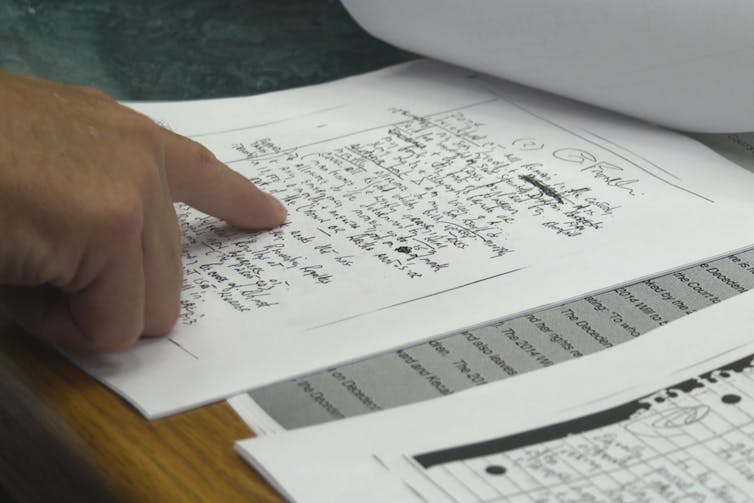Why Aretha Franklin’s handwritten will was upheld by a jury
(The Conversation) – A handwritten will in a spiral notebook found wedged between couch cushions months after Aretha Franklin’s 2018 death is valid, a jury in Pontiac, Michigan, has decided. The July 11, 2023, verdict ended a yearslong legal dispute among three of the soul singer’s four sons over which of three informal wills found in her home should take precedence over the others. As a result, the four-page document, drafted in 2014, will now guide how the singer’s multimillion-dollar estate and royalties will be distributed among her heirs.
The Conversation asked Reid Kress Weisbord and David Horton, two legal scholars who are experts on wills and trusts, to explain what the verdict means and how others can avoid this situation.
Did the informality of these documents matter?
No U.S. jurisdiction requires a will to be typewritten or professionally drafted by an attorney. Anything written down can serve as a valid will if the person who created it has sufficient mental capacity, wants the document to serve as a will and satisfies certain technical requirements for signing the document.
Most states do require that at least two witnesses observe the will being signed and then add their own signatures to the will as “attesting witnesses.” But some states, including Michigan, do not require witness signatures if the will was written and signed in the deceased person’s handwriting.
However, when a will is professionally drafted by an attorney and signed by neutral witnesses, the facts surrounding the will’s preparation and execution can be easier to prove in court – most likely reducing legal expenses for heirs.

What matters when there are competing versions of wills?
Every will contest turns on its own unique facts.
The dispute in Franklin’s estate focused on whether a handwritten document from 2014 was properly signed and, if so, whether she intended for that document to operate as her will.
That document was the most recent of all of Franklin’s potential wills, which usually would be the determining factor. But it lacked a traditional complete signature. Instead, there was a smiley face drawn immediately before “Franklin.”
According to long-standing law, any mark intended as a signature is sufficient to validate a will.
Is this unusual for someone rich and famous?
About 2 in 3 Americans have not formally spelled out in a will what should happen with their estates following their deaths. Those most likely to have wills tend to be over 65 years old, well educated and wealthy.
While it’s somewhat uncommon for someone as rich and famous as Franklin to die without a will, it does happen occasionally. Other good examples include civil rights leader Martin Luther King Jr., artist Pablo Picasso and business magnate Howard Hughes.
Legal wrangling over singer-songwriter Prince’s huge estate took six years to resolve because he didn’t leave a will behind and the musician had no children or spouse when he died in 2016.
Does this court case set any precedents?
No. The verdict came from a probate court jury. Because the case was not decided with a ruling from an appellate or another higher court, it doesn’t set a legal precedent.
How much can these legal battles cost heirs?
The attorneys fees in litigation over wills can be hefty. When we studied 443 probate cases from San Francisco between 2014 and 2016, we found that disputes like the one in Franklin’s estate incurred an average of about $17,000 in additional attorneys fees. Cases like Franklin’s, which took several years to resolve, usually cost much more.









